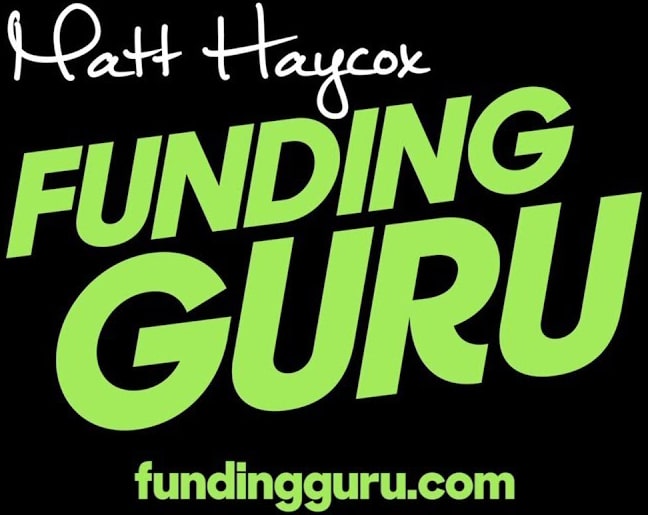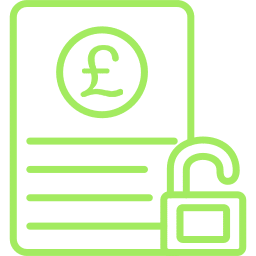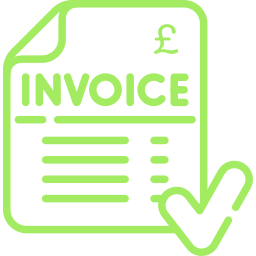Unsecured business loans are a type of borrowing where regular payments are made each month until the full amount is paid back. Because the loan isn’t tied to any security, the interest rates tend to be higher. But knowing when and how to use unsecured business loans can be the difference between success and failure for your business.
In this article, we explore unsecured loans, their advantages, and the types of businesses that may benefit from unsecured finance. We also discuss how easy unsecured loans are to get, and how they impact your credit rating.
How unsecured loans work
No collateral is provided in an unsecured loan, meaning that guarantee of repayment must be made through other means. A personal guarantee may be given instead of collateral, in which a guarantor (usually the company director) agrees to cover the cost of the loan if repayment is not otherwise possible.
There are a few key differences between unsecured and secured loans, but mainly that the latter relies on assets as collateral.
What Isn’t an Unsecured Business Loan?
Sometimes it’s easier to understand what doesn’t constitute an unsecured loan. Examples include:
Vehicles Loans – including cars and vans which the lender can then take back when you fail to pay.
Business Mortgages – A loan allowing you to buy your business premises which can be repossessed by the lender when you can’t keep up with repayments.

Types of unsecured loans
A broad range of finance products are unsecured, and a few of the main ones are explored below.
Unsecured business loan. A loan not backed by collateral, where the decision to lend is based on the creditworthiness of the director or owners of a business and the responsibility to cover a defaulted loan rests on them.
Business cash advance. A loan based on previous debit and card sales, which is repaid weekly as a percentage of future card sales.
Equity crowdfunding. A loan borrowed via contributions from multiple lenders, who receive equity in the business along with repayment of their loan.
Debt crowdfunding. Similar in structure to equity crowdfunding, except that equity is not offered and a personal guarantee is given instead.
Donation crowdfunding. Again, similarly structured to equity crowdfunding except that lenders donate money solely on their belief in the business they are funding.
Advantages of an unsecured loan

The main advantage of unsecured business loans is that there is no need to put up any of your business’s – or your – assets. In the event of your business being unable to to make repayments on the loan, the lender doesn’t have any claim over either the business’s or your property. They are also often quicker and less complex than secured loans, meaning capital can be accessed in a much shorter space of time.
But there are also other advantages to utilising an unsecured loan:
Higher loan amounts – While this might not seem logical, unsecured business funding doesn’t have an upper limit to it; secured funding is limited to the value of the assets secured to it. Unsecured loans don’t have this limitation, although the cost (interest rates) and repayment schedule will reflect larger loan amounts.
Easier to access – With less paperwork being required to value and assess assets, unsecured loans can be easier and quicker to get. It usually involves less documentation which can delay the acceptance of a loan application.
Additional flexibility – Having extra cash on hand and ready to use whenever you need it is great for when you need to purchase new IT software, a new hire, or need working capital, especially when it isn’t secured against your existing assets.
Building relationships – Obtaining an unsecured loan from a lender can help establish a relationship with a lender. This can help you further down the line when you need additional credit and you’ve already proven yourself and your business to be reliable.
Disadvantages of an unsecured loan

There are obviously some downsides to unsecured loans too. If you don’t read your terms carefully and fail to live up to the expectations of the lender then you can end up hurting your business’s reputation, financial stability and ability to get further funding:
Your liability – While not held against assets, it still means you have to repay it back each month without fail. You won’t get many second chances to pay, if at all, if you miss a repayment.
Additional costs – An unsecured loan is secured by trust; it is a much bigger risk for the lender. This means that there will be higher costs associated with this type of borrowing. Although how much more expensive it is will depend on how good your credit rating and end of year accounts are.
Building a bad reputation – Maintaining good repayments can enhance your reputation with lenders but the opposite is also true. Not managing your loan and your repayments effectively can cause irrevocable harm in your relationship with your lender. It can make it more difficult to obtain credit lines in the future.
Flexibility – Yes, flexibility can be both a benefit and hinderance. While the influx of a cash boost can do just that to your business, it also means committing to pay it back over an agreed time which could be as short as a year or longer (1-5 years). Shorter terms mean higher monthly repayments, which can significantly hinder your business cash flows.
Unsecured doesn’t mean you don’t have to pay – Just because the loan is unsecured, it doesn’t mean that the lender won’t attempt to collect if your business defaults on the loan either. If they feel it worthwhile, they might still attempt to come after you and your assets via the courts.
What Happens When You Can’t Pay Your Unsecured Loan?
At best if you don’t make payments it might damage your credit rating but it can get worse:
- Additional charges are added
- Credit rating is affected
- Lender goes to court
- A CCJ is issued
- A charging order is applied for against your property
Who are unsecured loans best suited to?

In our experience, businesses who do not have high-value assets (or do not wish to offer these as collateral) stand to benefit from unsecured finance. They are given the freedom to borrow money to assist with expansion and growth, while maintaining peace of mind that their assets are not at risk.
Businesses looking to embark on a capital-intensive project can benefit for the same reason: they are able to carry out the project safe in the knowledge that risk to business property and assets is minimised.
Industries such as retail and leisure are also well suited to unsecured finance, as the terms of lending favour businesses who are prone to have unexpected expenses that need only short-term loans to bridge the gaps.
Am I Eligible for an Unsecured Business Loan?
Your application will be based on your company’s business rating, your personal credit rating and on the merits and strength of your loan application.
The lender will assess how much of a risk is involved in lending you money; however this risk is often realised in the terms and conditions (interest rate and repayment terms) of your business loan. For instance, a healthy company with a large balance sheet showing good profits will be offered more attractive rates and repayment terms than a business that cannot demonstrate a healthy balance sheet or a full order book.
Every lender or institution will have their own lending criteria. It could be a trading history covering one, two or five years, or it could be a certain number of filed accounts.
The Funding Guru team are happy to talk you through any of our financial solutions, unsecured or otherwise. Got questions? Just ask!.






















